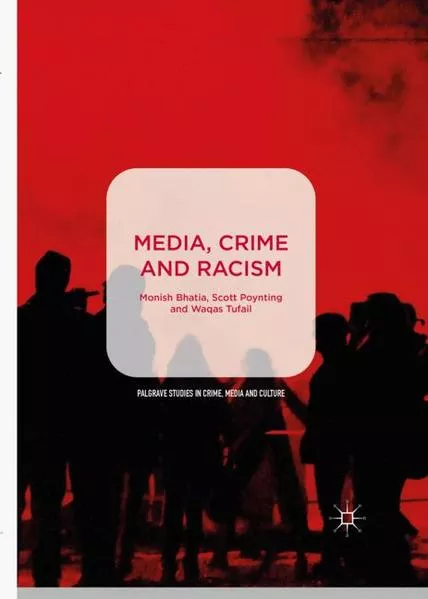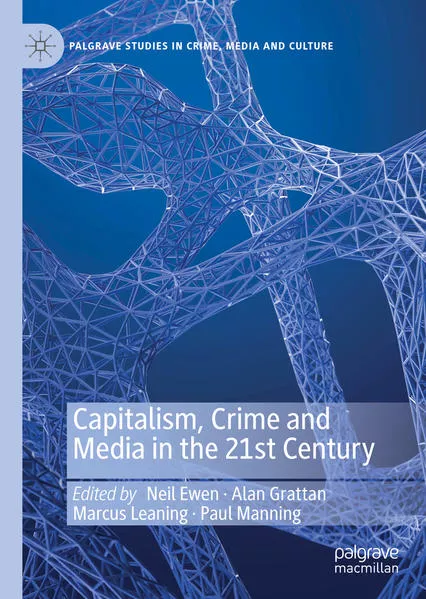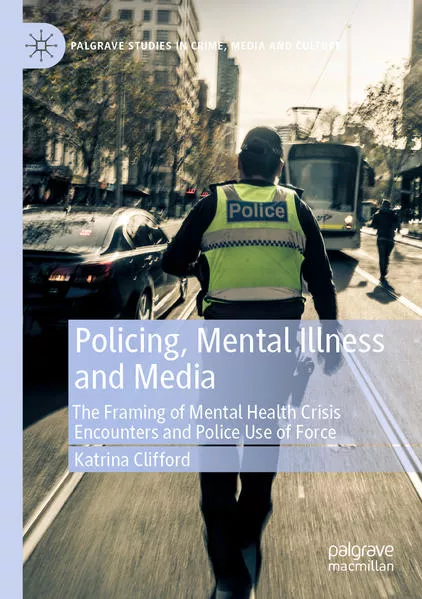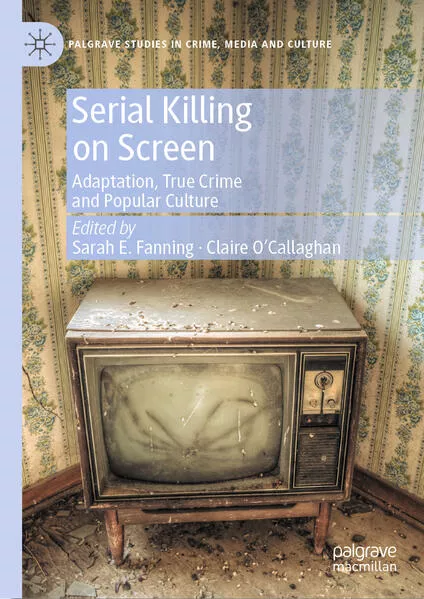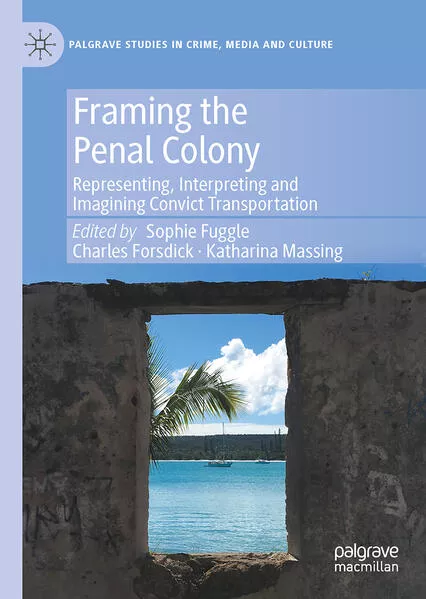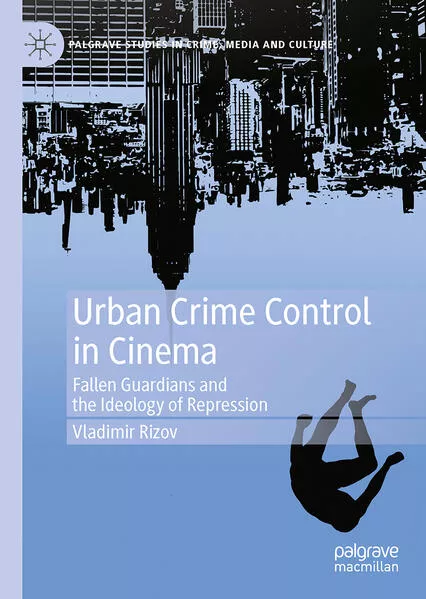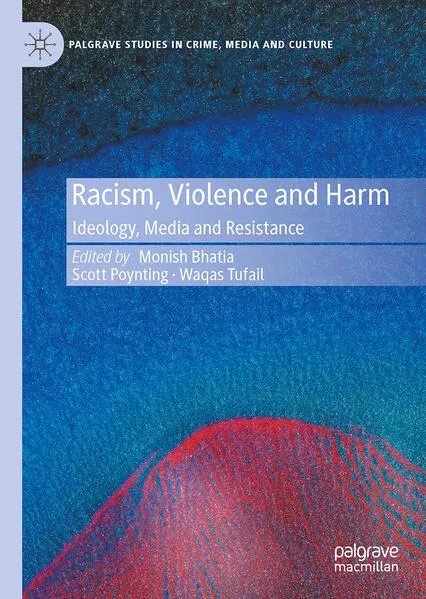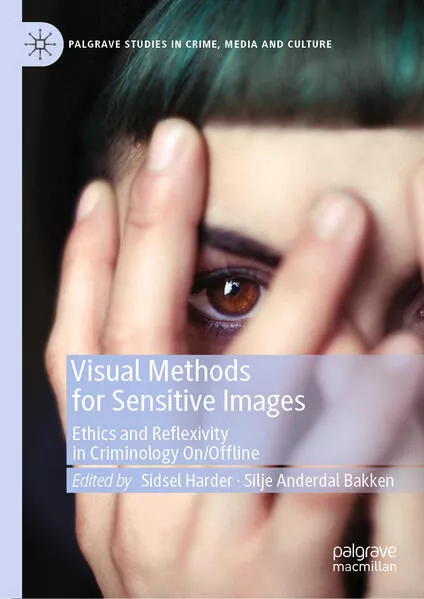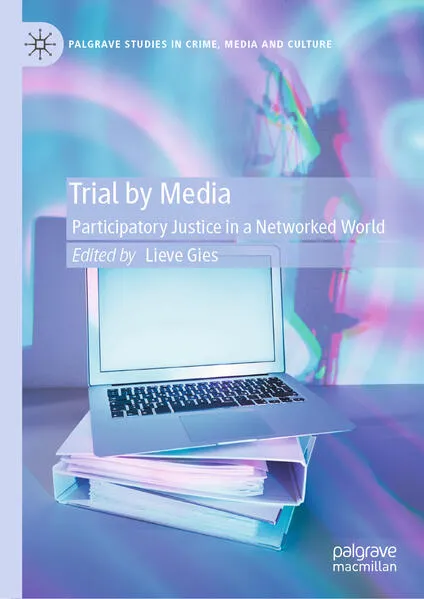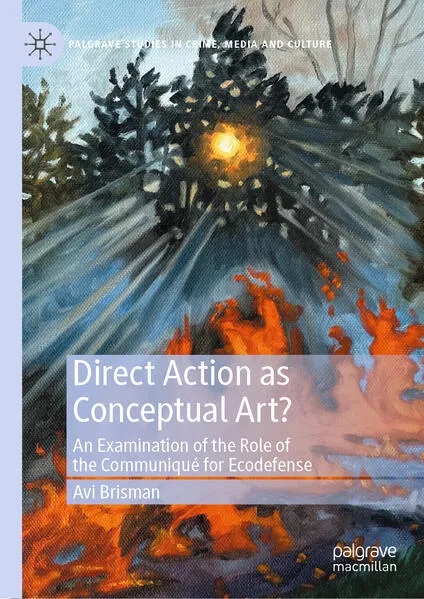Chronologie aller Bände (1 - 11)
Die Reihenfolge beginnt mit dem Buch "#Crime". Wer alle Bücher der Reihe nach lesen möchte, sollte mit diesem Band von Rebecca M. Hayes beginnen. Der zweite Teil der Reihe "Capitalism, Crime and Media in the 21st Century" ist am 16.04.2021 erschienen. Mit insgesamt 11 Bänden wurde die Reihe über einen Zeitraum von ungefähr 7 Jahren fortgesetzt. Der neueste Band trägt den Titel "Direct Action as Conceptual Art?".
- Anzahl der Bewertungen für die gesamte Reihe: 13
- Ø Bewertung der Reihe: 4.6
- Start der Reihe: 07.09.2018
- Neueste Folge: 05.07.2025
Diese Reihenfolge enthält 10 unterschiedliche Autoren.
- Autor: Hayes, Rebecca M.
- Anzahl Bewertungen: 10
- Ø Bewertung: 4.6
- Medium: Buch
- Veröffentlicht: 07.09.2018
- Genre: Krimi
#Crime
As research continues to accumulate on the connections between media and crime, #Crime explores the impact of social media on the criminal legal system. It examines how media influences our perceptions of crime, the perpetration of crime, and the implementation of punishment, whilst emphasizing the significance of race, ethnicity, class, gender, and sexuality. It offers an accessible and in-depth examination of media and in each chapter there are case studies and examples from both legacy and new media, including discussions from Twitter that are being used to raise awareness of criminal legal issues. It also includes interviews with international scholars and practitioners from Australia, Belgium, and the United States to voice a range of global perspectives. This book speaks broadly to those interested in criminology, criminal justice, media and culture, sociology, and gender studies.
- Autor: Bhatia, Monish
- Anzahl Bewertungen: 3
- Ø Bewertung: 4.6
- Medium: Buch
- Veröffentlicht: 02.02.2019
- Genre: Krimi
Media, Crime and Racism
- Autor: Ewen, Neil
- Anzahl Bewertungen: 0
- Ø Bewertung:
- Medium: Buch
- Veröffentlicht: 16.04.2021
- Genre: Krimi
Capitalism, Crime and Media in the 21st Century
This edited collection from leading scholars in the fields of media, communications, cultural studies and a number of aligned areas looks to the intersection of capitalism, crime and the media. The text is founded on the principles of cultural criminology – that how we determine and understand crime lies in the social world and that the determination of crime and its mediation in popular culture have a political basis. The book consists of eleven chapters and is divided into three sections. Section one considers the intersection of crime and capitalism in a range of contemporary cultural texts. Section two examines how various power systems influence the operation of the media in its role of reporting crime and holding the powerful to account. Section three considers how texts in a variety of formats are used to conduct politics, communicate politics and enact political decision making.
- Autor: Clifford, Katrina
- Anzahl Bewertungen: 0
- Ø Bewertung:
- Medium: Buch
- Veröffentlicht: 27.02.2022
- Genre: Krimi
Policing, Mental Illness and Media
This book examines the complexities of the relationship between policing and mental health – in Australia especially – including the circumstances that lead to police use of force, and the ways in which news media typically report deaths resulting from police contact with people in mental health crisis. When a vulnerable member of society is killed by the police, it is only natural that questions are asked about the behaviour and actions of those involved. Police are, after all, meant to be the ‘protectors of society’. By virtue of these circumstances, fatal encounters between police and mentally ill individuals in crisis often attract heightened media and legal attention, as well as public debate. Drawing together research interviews and extensive case study analysis, the book explores the conditions for the production of this news media coverage, the ways in which it can shape public perceptions of police-involved mental health crisis interventions, and the potential impactson those involved in and affected by such events. The implications for police agencies are also considered in the context of how they respond to vulnerable people in the community, while being in the media spotlight. This book will appeal to students, scholars and practitioners in journalism, media studies, policing, criminology, sociology, and mental health as well as those interested in learning about the relationship between policing, mental illness, and media representation.
- Autor: Fanning, Sarah E.
- Anzahl Bewertungen: 0
- Ø Bewertung:
- Medium: Buch
- Veröffentlicht: 01.12.2022
- Genre: Krimi
Serial Killing on Screen
- Autor: Fuggle, Sophie
- Anzahl Bewertungen: 0
- Ø Bewertung:
- Medium: Buch
- Veröffentlicht: 06.02.2023
- Genre: Krimi
Framing the Penal Colony
- Autor: Rizov, Vladimir
- Anzahl Bewertungen: 0
- Ø Bewertung:
- Medium: Buch
- Veröffentlicht: 23.02.2023
- Genre: Krimi
Urban Crime Control in Cinema
This book uses popular films to understand the convergence of crime control and the ideology of repression in contemporary capitalism. It focuses on the cinematic figure of the fallen guardian, a protagonist who, in the course of a narrative, falls from grace and becomes an enemy of the established social order. The fallen guardian is a figure that allows for the analysis of a particular crime control measure through the perspective of both an enforcer and a target. The very notion of ‘justice’ is challenged, and questions are posed in relation to the role that films assume in the reproduction of policing as it is. In doing so, the book combines a historical far-reaching perspective with popular culture analysis. At the core remains the value of the cinematic figure of the fallen guardian for contemporary understandings of urban space and urban crime control and how films are clear examples of the ways in which the ideology of repression is reproduced.
This book questions thejustifications that are often given for social control in cities and understands cinema as a medium for offering critique of such processes and justifications. Explored are the crime control measures of private policing in relation to RoboCop (1987), preventative policing and Minority Report (2002), mass incarceration in The Dark Knight Rises (2012), and extra-judicial killing in Blade Runner 2049 (2017). The book speaks to those interested in crime control in critical criminology, cultural criminology, urban studies, and beyond.
- Autor: Bhatia, Monish
- Anzahl Bewertungen: 0
- Ø Bewertung:
- Medium: Buch
- Veröffentlicht: 02.11.2023
- Genre: Krimi
Racism, Violence and Harm
- Autor: Harder, Sidsel
- Anzahl Bewertungen: 0
- Ø Bewertung:
- Medium: Buch
- Veröffentlicht: 27.12.2024
- Genre: Krimi
Visual Methods for Sensitive Images
This edited book provides a toolbox for researchers and students working with sensitive images in criminological research on and offline. Across three sections on collecting, analysing and mediating sensitive visual data, the chapters cover a wide array of current examples and discussions of visual methods and ethics in contemporary, digital-life criminology. It reflects the experiences of influential and innovative scholars engaging in empirical analysis of images across various subfields within criminology, including with images that deal with crime, social problems and stigma. They emphasize the opportunity for gaining knowledge through visual analysis and include methodological discussions of how to approach such sensitive data material. Some chapters address visuals as data in mediated realities and the related methodological concerns. The book also contributes to discussing the various ethical sides to researching crime-related sensitive images, such as anonymity, consent, and access, but also relates to researcher reflexivity and protecting researchers' well-being.
- Autor: Gies, Lieve
- Anzahl Bewertungen: 0
- Ø Bewertung:
- Medium: Buch
- Veröffentlicht: 25.02.2025
- Genre: Krimi
Trial by Media
This edited collection brings together scholars from criminology, law, media and communication studies, politics and linguistics to consider the different meanings and dimensions of trial by media. Trial by media remains an under-researched and under-conceptualised phenomenon. This book sheds new light on the complex and evolving interfaces between courts, media and justice. It features original analysis of high-profile cases of media trials including Nicola Bulley (UK), Lindy Chamberlain (Australia), Chris Dawson (Australia), Sanda Dia (Belgium), Dragan Vasiljković (Australia) and Roman Zadorov (Israel). Acknowledging the risks and benefits of heightened media scrutiny of the criminal justice system, the book challenges the notion that trial by media is invariably incompatible with the requirements of natural justice. It also foregrounds ways in which media trials routinely occur in the absence of a legal trial, arguing that there is a need to broaden and rethink the concept of trial by media. The book reflects on the enduring significance of legacy media for public perceptions of the law and the disruptive impact associated with digital media. Furthermore, the collection considers the implications of trial by media for the integrity of court proceedings and the protection of human rights. It offers an assessment of the potential demise of court reporting and its traditional bridging function between courts and public opinion.
- Autor: Brisman, Avi
- Anzahl Bewertungen: 0
- Ø Bewertung:
- Medium: Buch
- Veröffentlicht: 05.07.2025
- Genre: Krimi
Direct Action as Conceptual Art?
This book offers an avenue for understanding the parameters, scope, meanings, and impacts of environmental protest. Focusing on ecodefense, it explores the significance of the communiqué (the written explanation of the reasons for an act of ecodefense), comparing the communiqué to written texts in Conceptual art. It presents and seeks to evaluate the following analogy: act of ecodefense : communiqué :: work of conceptual art : written declaration/statement. By considering the communiqué in this light, this book helps us better comprehend the rationales for “radical environmentalism” undertaken for the purposes of reducing environmental harms, natural resource exploitation, and animal abuse.

